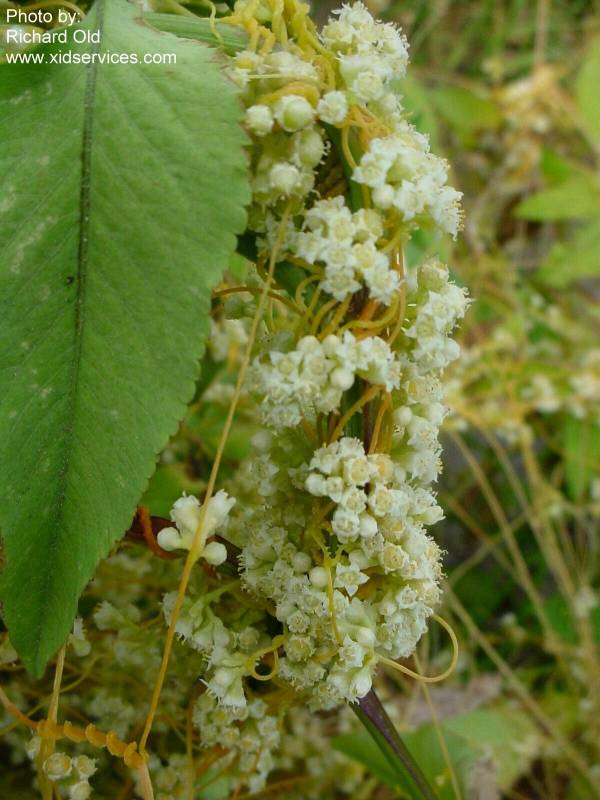Cuscuta pentagona
field dodder, five-angled dodder
Leaves reduced to tiny scales.
Flowers in small clusters, on pedicels about equal to the calyx;
calyx not fleshy, 1.5-3 mm. long, shallowly cup-shaped, the 5 lobes broadly ovate-triangular, overlapping slightly at the base;
corolla equaling the calyx, persistent, the tube broadly bell-shaped, slightly longer than the 5 spreading to reflexed, lanceolate, acute lobes;
stamens 5, inserted just below the sinuses of the tube, exerted, the filaments exceeding the small anthers; obovate-oblong scales covering the base of the filaments are conspicuously fringed above, joined about 1/3 their lengths;
styles 2, 1 mm. long;
ovary superior, 2-celled.
Capsule depressed-globose, 2.5-3 mm. long.


